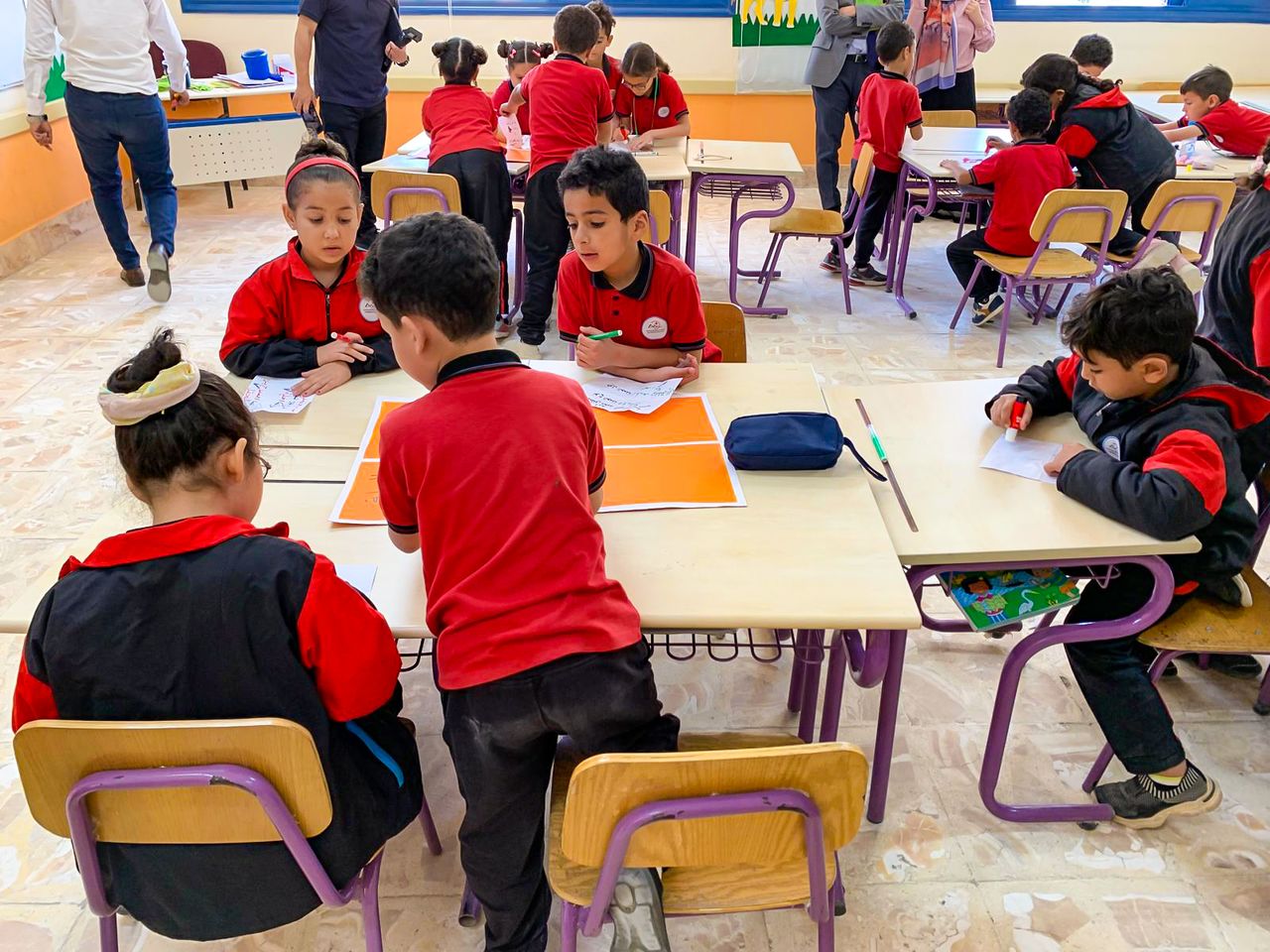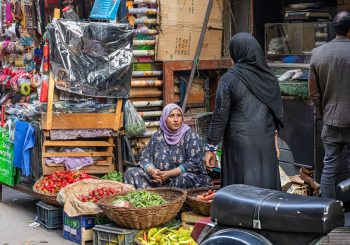Despite Egypt’s legal framework criminalizing rape, marital rape remains a pervasive issue that is not recognized by law. According to the 2021 Egypt Family Health Survey, 6 percent of married women aged 15-49 in Egypt have experienced sexual violence. This includes being physically forced to have sexual intercourse or perform a sexual act, or being threatened to perform a sexual act.
Dr. Wafaa Eltantawy, a psychosexual and relationship therapist, told Egyptian Streets that “Usually, patients don’t call it marital rape because, within the Arab culture and religious context, a sexual relationship is allowed within marriage.”
A Hidden Crisis
The Egyptian law criminalizes rape, stating, “Whoever lies with a female without her consent shall be punished with the death penalty or life imprisonment.” However, marital rape—sexual intercourse with a spouse without their consent—is not criminalized.
“There is a lot of misinformation about marital rape and consent in Egypt, especially in light of Islamic and Christian teachings, so it’s hard to find a clear representation of marital rape and definition,” Eltantawy shared with Egyptian Streets.
The state religion of Egypt is Islam, and Egyptian family law mandates that wives should obey their husbands, including sexually satisfying them when needed. Therefore forced sexual intercourse within marriage is not a criminal offense, as per Egyptian law.
Al-Azhar Fatwa Global Center has emphasized that no Hadith permits harming a wife physically or psychologically or ignoring her suffering caused by her husband’s immoral behavior or poor treatment.
Islam prohibits harming a wife physically or psychologically or ignoring her suffering caused by her husband’s immoral behavior or poor treatment as marriage should be based on affection, mercy, and chastity.
Stories Untold
Yet, many husbands rape their wives. Family Court records reveal that 60 percent of married women are subjected to marital rape. In 2019, approximately 1,350 complaints were filed by wives who suffered sexual violence, and 425 complaints reported that the wife sustained a permanent disability.
“He’s a good father and he provides for our family, but he is violent behind closed doors,” A 41-year-old Egyptian woman told Egyptian streets. “He beats me up when we fight and that’s why I stopped fighting. Sometimes he takes his frustration on me by forcing me into having intercourse with him, and I can’t say no anymore. I used to, but it led to very violent sex, so now I just do it in silence.”
Over one-third of women who faced physical or sexual violence from their spouses sustained injuries, with 9 percent suffering severe injuries, as reported by Egypt’s 2021 Family Health Survey.
Eltantawy explains that a woman might not want to have sexual intercourse but does out of fright. This fear could be from emotional abuse, verbal abuse, or physical abuse, and they would unwillingly do it to avoid the consequences.
“I can not get a divorce,” the 41-year-old woman said. “My parents are deceased, where would I go? I am too scared to even ask him or tell my brothers to help me. He could take the children away from me.”
As reported by Eltantawy, offenders might manipulate or gaslight the victim to maintain control and prevent them from seeking help or leaving the relationship, especially if she’s reliant on him financially. They might deny responsibility or rationalize and justify their action as a reaction to their victim’s behavior, leaving the rape survivor feeling shame, guilt, and self-blame, despite understanding intellectually that they are not at fault.
Survivors may have long-term psychological consequences, such as PTSD, depression, anxiety, and difficulty with intimacy and trust in future relationships, in the words of Eltantawy.
“I can not imagine being married or in a relationship again,” F.Y.A, a 29-year-old marital rape survival Egyptian woman, told Egyptian streets.
“My ex-husband withheld affection and became cold when I didn’t comply with his wishes. A simple ‘no’ to his advances would result in days of silence and subtle threats that restrict my freedom,” she shared her story. “He won’t let me visit my mother or he would hide my car keys and prevent me from going to work the next day if I said no.”
According to Eltantawy, marital rape can be done through emotional manipulation or control by using sex as a transaction to provide something in return.
Inconsistent behavior from the offender, such as physical abuse followed by gifts and kindness, can make the victim feel confused, lack trust, and lead to deep emotional pain and a sense of isolation, Eltantawy told Egyptian Streets. “Especially if societal or cultural norms minimize or dismiss the victim’s experience, which happens in Egypt a lot. When a woman goes to her family for help, her parents would tell her that it is normal and ask her to put up with her husband.”
Surviving marital rape
When dealing with marital abuse or rape, there are many aspects to consider; Religion, understanding of sexual relationships, the offender and the victim’s culture and upbringing, the financial situation of the victim, and many other things involved in the assessment, according to Eltantawy.
“The underlying reason for the offender’s behavior is complex and could be considered,” She told Egyptian Streets, confirming that the offender’s behavior could be influenced by various factors such as power imbalance between the couple, control issues, entitlement, and distorted beliefs about relationships and sexuality.
Additionally, offenders may view their spouse as their property, expecting her to obey him completely, and believe they have the right to sexual access regardless of consent, Eltantawy shared. “On the other hand, survivors of marital rape could feel a profound sense of violation, betrayal, and powerlessness.”
Eltantawy reported that the first thing to do with a victim seeking help as a medical professional is to ask them clearly if they’ve been sexually, physically, emotionally abused, or verbally abused. This opens the door for the victim to talk, and then the medical professional can work on identifying what’s happening and support her.
“If marital rape is defined and the victim acknowledges that she is in an abusive relationship,” Eltantawy stated. “We would educate her about her rights and provide support services, such as therapy and resources to help her process her emotions, heal from the trauma, and rebuild her sense of agency and self-worth.”
“Seeking help is essential.”
“Egyptian women can’t go to the police and report her husband for rape. Authorities wouldn’t understand that,” Eltantawy stated.
To solve this problem on a societal scale, Eltantawy suggested starting with education on sexual rights and marital rights, as well as creating resources and agencies that could help victims understand what they are going through, figure out what they want for themselves, learn to be autonomous, and look after themselves.
“Family doctors in Egypt are usually the first point of contact, and if we can create an environment where women are respected, not dismissed, listened to, empathized with, and validated, they can report such abuse and seek help to leave their abusive relationships and heal,” She said.
Just as female genitalia mutilation (FGM) took a long time to criminalize, I don’t think criminalizing marital rape is something that might happen soon, Eltantawy said.







Comment (1)
[…] post Marital Rape in Egypt: Voices of the Silenced first appeared on Egyptian […]